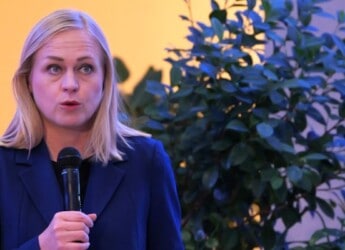Editor’s Note: In a significant and unexpected move, Google has announced a shift in its approach to third-party cookies in its Chrome browser. This decision has major implications for the digital advertising industry, which has been preparing for a cookieless future. Google’s new plan involves introducing a user-choice prompt, allowing individuals to select their preferred level of web tracking. This change comes after feedback from advertisers and regulators highlighted the complexities of eliminating cookies entirely. As the digital advertising landscape braces for this new development, the response from various industry stakeholders, including privacy advocates and regulatory bodies, will be crucial in shaping the future of online tracking and advertising.
Content Assessment: Google Reverses Decision to Eliminate Third-Party Cookies, Introducing New User-Choice Prompt in Chrome
Information - 92%
Insight - 91%
Relevance - 88%
Objectivity - 89%
Authority - 88%
90%
Good
A short percentage-based assessment of the qualitative benefit expressed as a percentage of positive reception of the recent article from ComplexDiscovery OÜ titled, "Google Reverses Decision to Eliminate Third-Party Cookies, Introducing New User-Choice Prompt in Chrome."
Industry News – Data Privacy and Protection Beat
Google Reverses Decision to Eliminate Third-Party Cookies, Introducing New User-Choice Prompt in Chrome
ComplexDiscovery Staff
In a move that’s got the tech world buzzing, Google just threw a curveball at the digital advertising industry. After years of promising to phase out third-party cookies in Chrome, they’ve suddenly changed course. Instead of killing off these little data trackers, Google’s now planning to let users decide for themselves how they want to be tracked online.
The VP of Google’s Privacy Sandbox project, Anthony Chavez, dropped this bombshell recently. He explained that Chrome will soon have a new prompt, asking users to pick their preferred level of web tracking. It’s a pretty big deal, considering how much of the internet runs on Chrome.
This shift has left a lot of people scratching their heads. For years, the industry has been gearing up for a cookieless future. Advertisers, publishers, and tech companies have been scrambling to find alternatives. But it seems like many didn’t really believe Google would go through with it. A Forrester survey found that 61% of B2C marketers thought Google would never actually pull the plug on cookies.
So, why the change of heart? Well, it turns out that ditching cookies is a lot more complicated than Google initially thought. Chavez mentioned that they got an earful from advertisers and regulators about how tricky this transition would be. Basically, the whole online ad ecosystem would need a major overhaul.
Remember Google’s Privacy Sandbox? It was supposed to be the cookie replacement, with fancy-sounding tech like FLoC and the Topics API. But it’s been facing an uphill battle. Critics have been slamming it left and right, saying it could create new privacy risks and give Google too much power.
The UK’s Competition and Markets Authority (CMA) even stepped in earlier this year, telling Google to pump the brakes on their cookie phase-out plans. Now that Google’s changed direction, the CMA’s saying they need to take a close look at what this means for consumers and the market.
Privacy advocates aren’t thrilled either. The Electronic Frontier Foundation (EFF) has been warning that the Privacy Sandbox might still let advertisers target ads based on user behavior. Even Apple’s been giving Google the side-eye, arguing that these new tools could make it easier for companies to “fingerprint” users across the web.
But here’s the thing – some folks in the industry are actually pretty chill about Google’s decision. Joe Root, who runs a tech company called Permutive, pointed out that a huge chunk of internet users are already browsing without cookies. Browsers like Safari and Firefox block them by default. “70% of the internet doesn’t have a third-party cookie,” Root said. “Google can make a change, but like 40% of [Chrome users] have already disabled cookies.”
The Network Advertising Initiative, a trade group in Washington, is on board with Google’s new plan. They think keeping cookies while giving users more control could help keep the internet competitive and free.
So, what should advertisers do now? Google’s own experts, Stephanie Liu and Mo Allibhai, are telling them to keep experimenting. They suggest trying out different strategies like contextual targeting and getting smarter about data use. The key is figuring out what consumer data you really need and making sure it lines up with your business goals.
There’s also this group called the Movement for an Open Web that’s been fighting Google’s Privacy Sandbox plans. They’ve been complaining to regulators that Google’s trying to take over the open web. After this latest news, they’re basically saying, “See? We told you Google’s plan wouldn’t work.”
So, what happens next? Well, the CMA’s going to take a good, hard look at Google’s new approach. Meanwhile, Google says they’re going to keep working on Privacy Sandbox and other privacy features, like better protection against IP tracking when you’re in Incognito Mode.
The big question now is how this user-choice prompt will actually work and what it’ll mean for the future of online advertising. Everyone from ad execs to privacy watchdogs will be keeping a close eye on how this all plays out.
One thing’s for sure – the digital ad world is in for some interesting times ahead. Google’s sudden about-face has shaken things up, and it’ll be fascinating to see how the industry adapts. Will users embrace the power to control their own tracking? Will advertisers find new ways to reach their audiences? Only time will tell, but you can bet there’ll be plenty of heated debates and creative solutions emerging in the coming months.
News Source
- What Advertisers Should Do Now: Google Reverses Decision To Eliminate Third-Party Cookies
- Google’s plan to turn off third-party cookies in Chrome is dying
- In reversal, Google keeps third-party cookies in Chrome browser
- Google Confirms Bad News For 3 Billion Chrome Users
- Google cancels plans to kill off cookies for advertisers
Assisted by GAI and LLM Technologies
Additional Reading
- Coinbase Battles SEC Over Access to Gary Gensler’s Private Communications
- Evolve Bank Cyberattack Exposes Sensitive Data, Impacts Fintech Partners Wise and Affirm
Source: ComplexDiscovery OÜ



























